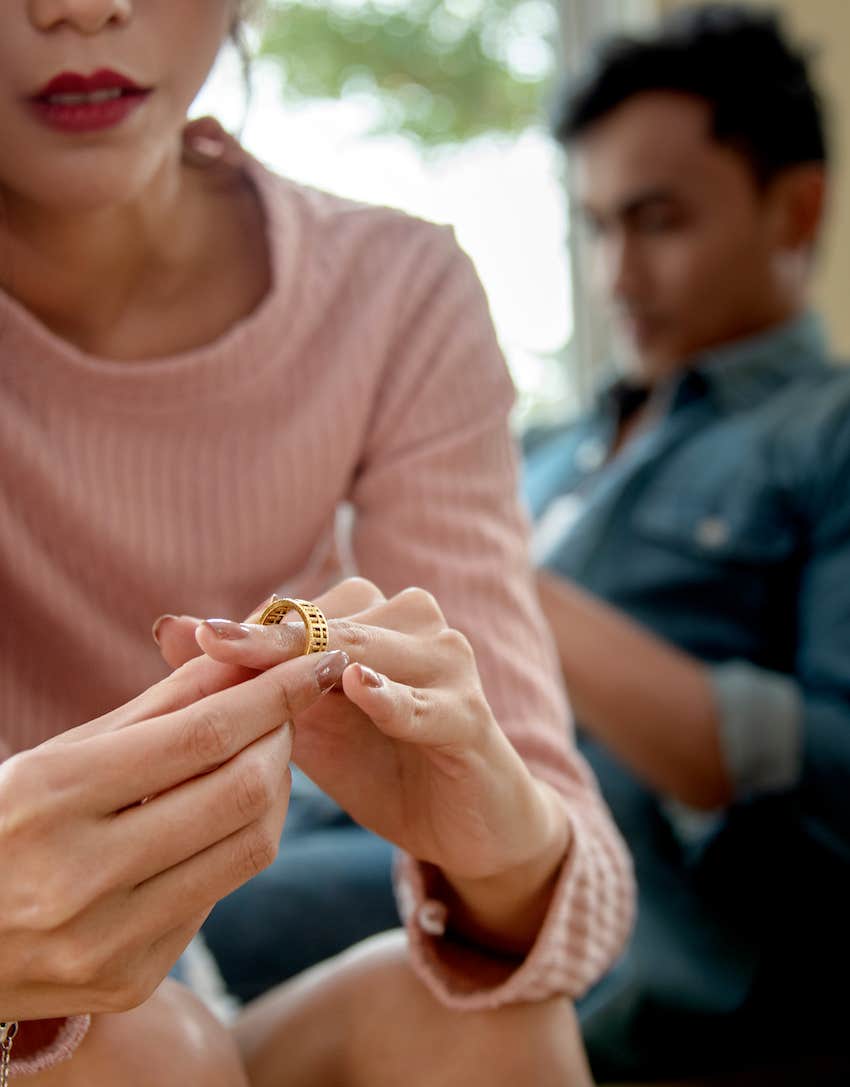5 Toxic Scenarios Where Couples Therapy Never Works
When to stay away from couples therapy.
 NoSystem images | Canva
NoSystem images | Canva I usually hold hope that my clients can build the healthy and loving relationships they want with time and effort.
Yet, there are times when another service might be more helpful, such as discernment counseling or closure therapy (explained below).
Here are 5 toxic scenarios where couples therapy never works:
1. Divorce is on the table.
If one or both of you are seriously considering divorce, you might benefit from a service called discernment counseling before you try couples therapy.
Discernment counseling is specifically for couples who have a lot of ambivalence about whether to move forward. It can help you both decide if you’re ready to commit to the work required by couples therapy or if you’re better off ending the relationship now.
2. You or your partner have already decided to split up.
If one of you has decided to break up, couples counseling won't be effective, and discernment counseling won't be necessary. Instead of couples therapy or discernment counseling, you might benefit from closure therapy.
In closure therapy, your therapist will create a safe space for you two to process the end of your relationship. They'll help you celebrate what was wonderful and ultimately let it go.
Closure therapy isn't for everyone, but if you and your partner still have a warm and respectful connection and you value processing what happened together, it could be the right option for you.

Photo: Supawadee56 via Shutterstock
3. You have opposite needs about a lifestyle decision, and neither will give up your dream.
You may have a fantastic relationship, but you have reached a point where your dreams are conflicting. Giving up what you need would feel like giving up the bones of your own body. Your partner feels the same way.
For example, one partner is offered their dream job in another country, but the other partner has elderly parents who need care and are unwilling to move away from them. Some couples can work through these difficult decisions and find ways to compromise, but others may decide it's time for a respectful and gentle ending.
Couples therapy can help you determine if a compromise is even possible, but if you and your partner already know it isn't, you might benefit more from closure therapy.
4. You or your partner have unaddressed substance abuse or mental health issues and are unwilling to seek help.
Couples who have struggled with mental health issues can have strong, caring relationships. Couples counseling can get stuck when one partner has a problem they aren’t seeking to resolve.
If your partner is addicted to a substance and taking no steps to address that, couples counseling won't make significant changes for your relationship until that issue is addressed. If your partner struggles with mental illness, couples counseling could be useful, but only to the extent your partner is willing to get the additional help they need from individual therapy.
5. Your partner emotionally, mentally, financially, or physically abuses you.
If your partner systematically belittles, gaslights, or even physically abuses you, you’re better off seeking individual counseling because couples counseling could make the abuse worse. It's vital to learn how to identify an abusive relationship, how to create a safety plan, and how to leave safely if that’s what you choose to do.
There are services like loveisrespect.org that offer a 24/7 text and phone call crisis line where you can reach out for support. You might feel confused if your relationship fits this category, so outside resources can help.
If any of the above fits your situation, you may need alternatives to couples therapy. Discernment counseling, closure counseling, or even individual counseling could be more helpful than couples counseling in some cases.
Only you and your partner know what's best for you.
If you’re experiencing domestic abuse, you’re not alone.
The National Domestic Violence Hotline reports that approximately 24 people per minute are victims of rape, physical violence, or stalking by an intimate partner in the U.S. More than 12 million women and men over the years have suffered from instances of domestic violence and abuse.
If you or someone you know is suffering from domestic abuse or violence, there are resources to get help.
There are ways to go about asking for help as safely as possible. For more information, resources, legal advice, and relevant links visit the National Domestic Violence Hotline. For anyone struggling with domestic abuse, call the National Domestic Violence Hotline at 1-800-799-SAFE (7233). If you’re unable to speak safely, text LOVEIS to 1-866-331-9474.
Susanna Guarino, LMHC is a couples therapy expert licensed in NY, RI, FL and AZ focused on helping couples go from being at odds to being close and connected.
